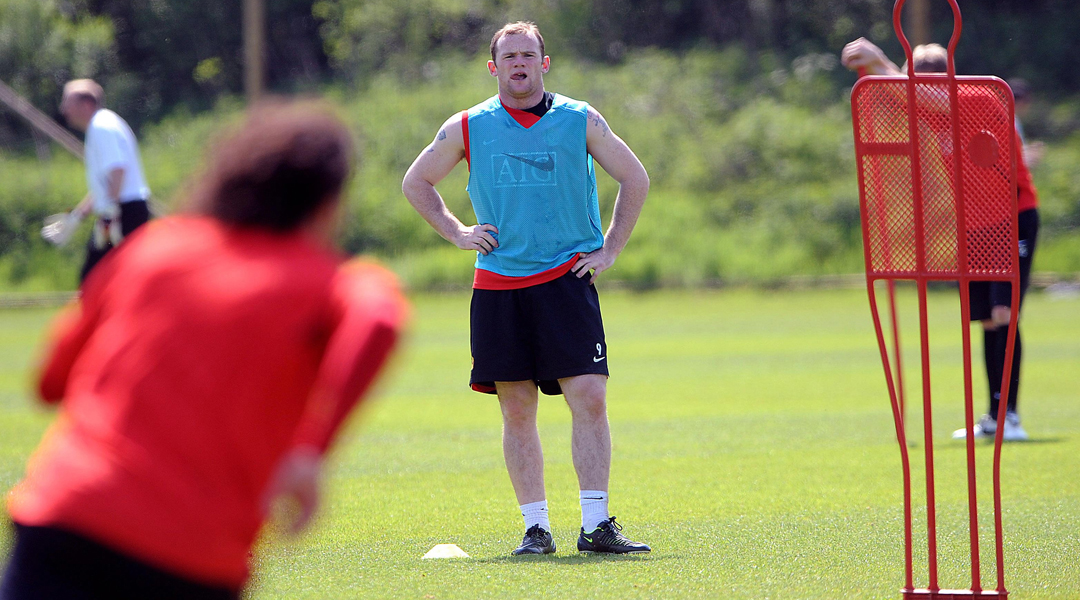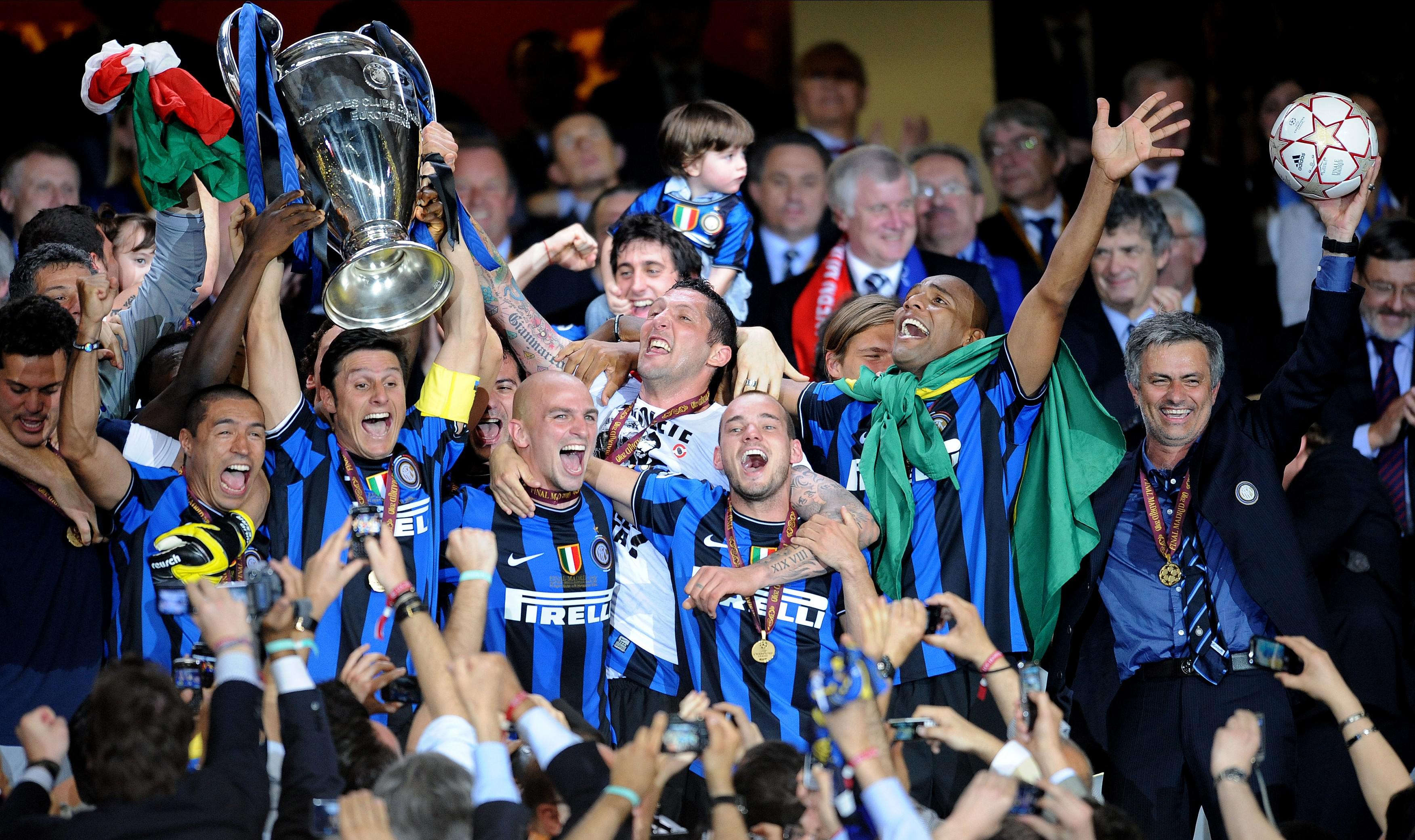Why quotas won't help England win the World Cup
FA Chairman Greg Dyke thinks limiting foreigners will help England win the 2022 World Cup in Qatar - but John Robertson says it would in fact make things worse...

The collective consciousness of our small nation's football fans continues to revolve around a world state that no longer exists. We might like to think of ourselves as a superpower of the modern and future football world, but the reality is different. We've been well and truly surpassed.
As a result of that misplaced sense of superiority, England loves to place blame anywhere but at its own doorstep. Pick an English player, manager, commentator or pundit at random, ask them why the England team is 'failing' (more on that later) and you're likely to get the same answer: too many foreigners in the Premier League. It's a response that's as lazy as it is inaccurate and xenophobic.
The notion that English players would be better if foreigners were kept out is ridiculous, a gross misreading of the situation that has the potential to damage homegrown talent by ignoring the real reasons for the (debatable) failure of the England team. To put it as simply as possible: having fewer foreign players in the Premier League would only make the England national team worse.
Knowledge and incentives
At the core of the FA's drive to drum up support for foreign player quotas is a belief that giving more playing time to Englishmen will make them better. This is the kind of banal simplification that English football so often uses to shoot itself in the foot, akin to 'it's pointless to practice penalties' and that direct football means 'the dreaded long ball' - both ideas subsequently disproved by foreign coaches and players.
That's nothing new: imported ideas have frequently made the England team better and will continue to do so. There's no better way of absorbing ideas than to witness them first-hand.
To do that we need foreign players in England in great numbers. Not only do they teach us a new cultural understanding of football, thereby diversifying and strengthening our knowledge, they motivate our young players to be better than they would otherwise become.
Get FourFourTwo Newsletter
The best features, fun and footballing quizzes, straight to your inbox every week.
A cap on foreign players in our leagues is a protectionist policy that promotes mediocrity
A cap on foreign players in our leagues is a protectionist policy that promotes mediocrity. Engaging with the world makes your own systems better through the sharing of knowledge.
That rings true whether you're constructing cars, establishing banks or raising the next generation of footballers. Without competition from foreign players, English youngsters would have less incentive to improve.
Rather than needing to be better than other players from around the world to secure a squad spot, you would only need to be better than the comparatively tiny group of players that you grew up with.
Playing Walcott against Walcott doesn't make Walcott better, physically or psychologically. Playing Walcott with and against foreign players that approach the game in a different way will.
Is Raheem Sterling a better footballer for playing and training with Philippe Coutinho and Luis Suarez? Of course. Is Ross Barkley better for playing against Nemanja Matic or Yaya Toure? Of course. Is Wayne Rooney better for having played with Carlos Tevez and against Javier Mascherano? Of course.

Limiting imports would directly undermine both the systems English players use to improve themselves and the effort they would require to succeed. In turn, that would result in inferior English players.
Danny Mills, part of the FA commission pushing the quota idea, has said that only the best foreigners are wanted/needed in English leagues - the likes of Dennis Bergkamp, Gianfranco Zola and Thierry Henry being more than welcome. Such an idea is, again, a gross simplification in reality.
What represents a stark upgrade for Leicester doesn't apply to Chelsea. Who is to say what the 'best' option is for clubs with wildly different outlooks on what kind of player they need and can realistically get? Mile Jedinak might not be the "crème de la crème" in universal terms, but he certainly is for Crystal Palace.
England's sense of superiority, leading to a reluctance to fully engage with the football world, harms it in other ways, too. Ways much more harmful than having eclectic influences in English leagues.
Export drive
While young players from across Europe and the world are eager to ply their trade in foreign countries, keen to learn new approaches to training, tactics and styles of play, English players are loathe to do the same.
Maybe it's because we're an island nation and there remains a cultural fear and suspicion of playing and living abroad. Maybe it's because we can't be bothered to learn a language other than English.
Or maybe it's simply that the money is better here - although that hardly tallies with the implication that English players are left unemployed by immigrants.
Playing in Serie A would teach English players the importance of positional awareness without possession. In the Eredivisie they'd learn the true value of constant movement and creating passing angles. In Germany they'd learn how to play 'direct football' in a form that promotes passing along the ground.
English players can get the minutes the FA so desperately crave by playing abroad, against opposition that will broaden their horizons and, in turn, make them better candidates for international competition.

There are other benefits to playing abroad, too. Undoubtedly, English players would receive a generally higher level of coaching across all age groups - of all the major European footballing nations, it's England that has the fewest coaches qualified to UEFA Pro Licence level.
England has a little more than 200 coaches qualified to such a level, Germany has in excess of 1,000 and Spain over 2,000. Coaching courses in England are also more expensive than those countries, despite the money in the English game, which raises the question of whether the FA's wider plans for player development will exclude potential coaches from poorer backgrounds.
Playing abroad would also rid players of having to grind through the much-maligned 'gruelling' English season. More than foreign imports, it's exhaustion that is harming England in summer tournaments. Odd, then, that the FA is so keen to get more English players on the treadmill.
Harry the elephant
If you're not good enough to play for your club, you're probably not good enough to play for England
The elephant in the room here is Harry Kane, Prime Minister Elect. The Tottenham striker is central to Greg Dyke's promotion of the player cap idea, the suggestion being that there must be others of Kane's quality rotting in development teams across the country.
Scouting systems and data analysis are so good now that such an idea is a myth. Kane didn't gallop into the Spurs team like a white knight on a unicorn, he fought to improve himself while bouncing around on loan. Once he was good enough, he played.
If you're English and good enough, you will play no matter how many foreigners are in your league. Look at Barkley, Sterling, Jordon Ibe, John Stones, Calum Chambers, Fabian Delph, Jack Wilshere, Nathaniel Clyne, Luke Shaw, Saido Berahino... if you're not good enough to play for your club, you're probably not good enough to play for England. Such players shouldn't get special protection status.
Reaching for the stars?
The whole reason for these FA proposals boils down to an England team that is failing. But is it really failing? How good do we expect it to be? In the past 50 years, the team has achieved a single semi-final, generally fading in the second round or quarter-finals - if we even got there, unlike the tournaments throughout the 1970s, in 1984, 1994 and 2008. And yet the perception is that we should be among the top four teams, and that the lack of success is somehow a puzzling new problem that needs a new solution.

Who do we think we're supposed to be better than? We can't expect to be better than Germany, a country with greater wealth, better grassroots facilities and a larger population.
We can't expect to be better than Holland or Spain, countries that continue to lead the world in devising and implementing new ways to train and educate young footballers.
We can't expect to be better than Argentina, a country that exports its best players around the world and reaps the benefits of the knowledge gained as a result.
England are probably as good right now as we can ever hope that they'll be. Limiting foreign influence on our home turf is only going to isolate the English game and promote an atmosphere of mediocrity. The FA say their proposals are designed to help England win the 2022 World Cup. They'll only make it less likely.
